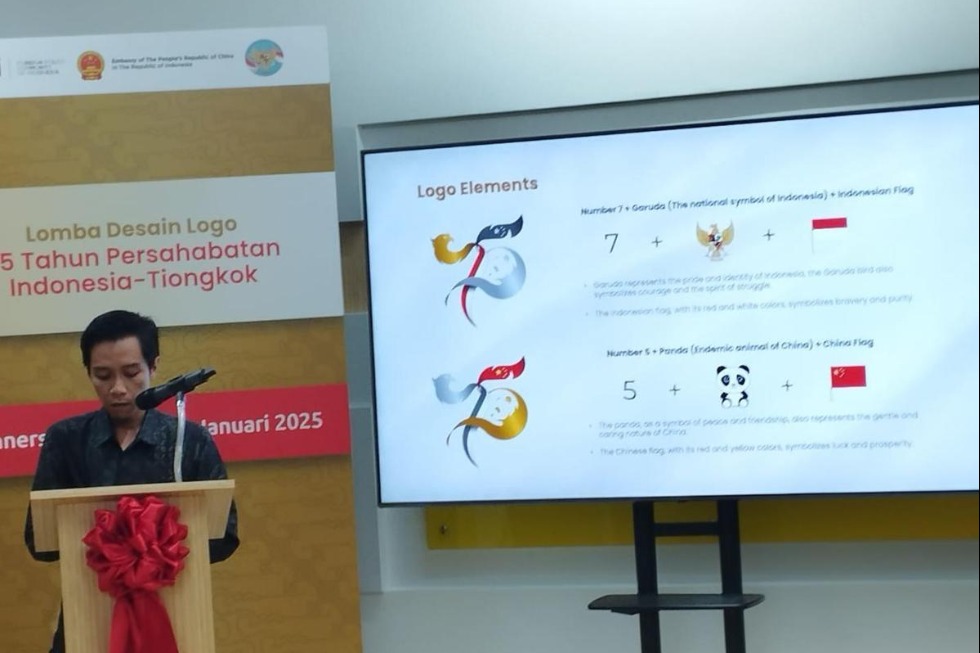Kenyan says studying in China was a wise choice


Editor's note: China Daily Global Edition offers the series Friends Afar to tell the stories of people-to-people exchanges between China and other countries. Through the vivid narration of the people in the stories, our readers can get a better understanding of a country that is boosting openness.
Back in the 1990s, Henry Rotich, who is from Kenya, didn't know much about China, with his best connection to the country being a teakettle made in Shanghai that was owned by his grandmother.
Nonetheless, he applied to study in China when an opportunity presented itself in 1998. Thinking it was just a shot in the dark, Rotich was surprised at being selected to pursue his master's degree in chemistry in China.
By accepting the chance, Rotich, who is currently director of weights, measures and testing at the standards bureau as well as chairman of the Kenya-China Alumni Association, embarked on what has become a long journey of partnership with China that has transformed and defined his life.
In 1998, he arrived in China to pursue his master's degree at Northeast Normal University in Changchun, Jilin province.
China became a country of many firsts for young Rotich. For example, after arriving, he experienced his first train ride while leaving Beijing on his way to Changchun.
His main challenge at that time was learning the language.
"When I started attending Chinese language classes, I realized I was totally illiterate for the first time in my life, as I could not read, say or write anything (in Chinese)," Rotich said.
However, after a month, he had learned a few common phrases.
"During my travels around China as a student, I found people very friendly and helpful. That is how I came to learn their language fast, because they were always willing to interact and help."
He recalled one person in particular who was very helpful. "During my time as a student in Changchun, I used to ride a bike around and ended up becoming friends with an old man who was stationed at a traffic stop controlling bicycle traffic. He became a friend because I would always stop at his station for a chat and he helped me learn the Chinese language and culture," Rotich said.
Learning language and culture depends on one's mindset as well as the opportunity to live in an environment where the language is used daily, Rotich said. He believes that China's scholarship program for African students to study in China has been instrumental in helping young Africans learn Chinese and immerse themselves in the culture.
Rotich said that what first impressed him was the work ethic of the Chinese. He remembers admiring a worker at his university who could load a whole truck with excavated soil all by himself.
"The other thing I noted was the strong sense of family. We would see grandparents taking children to school, and during the weekend, parents could be seen taking their children to attend extracurricular activities," Rotich said.
To complete his chemistry studies, Rotich spent eight years in China. Asked about the benefits of studying in the country, Rotich, who is married to a Chinese woman, quipped that he came back to Kenya with "three degrees" in the same period it would take others to get just two degrees. "The first degree is my wife, the second one is my master's and, finally, my PhD," he said proudly.
Rotich said he met his wife, Xu Jing, through a friend and asked her to help him learn Chinese. Fortunately, she was also interested in learning English from him, and so, as they say, the rest is history.
"My two children who have been brought up in Kenya speak and write Chinese very well. My daughter can even perform on the guzheng (a Chinese zither with more than 20 strings). So far, they have read all the Chinese books I have bought them, including most of the important books that most Chinese students read," Rotich said.
As one who has not only experienced Chinese culture but gone a step further by marrying a Chinese person, Rotich said that different countries and people should concentrate on their cultural similarities.
"If you have a piece of white paper with a small dot in the middle, most people might see that dot more instead of the big white space. So as people, our cultures are vast like the white space, but our differences are like this small dot, which we can ignore," Rotich said.
He has noted many similarities between the Chinese and Kenyan cultures, and this has helped him appreciate the Chinese way of life. The similarities include respect for the elderly, families gathering during special festivals, and good neighborliness.
As Kenya marks 60 years of diplomatic relations with China, a number of cross-cultural activities have been organized, which Rotich believes can showcase the cultural similarities.
"Kenya has a rich tourism offering, and we can offer that every July to September, when we receive a lot of Chinese visitors. Remember, Kenyans and the Chinese began interacting centuries ago in Mombasa when Chinese sailors landed at our coast. We can promote this history for the Chinese to come and explore," Rotich said.
As chairman of the Kenya-China Alumni Association for Kenyan students who studied in China, Rotich hailed the role played by Chinese scholarships in promoting cultural exchanges between the two countries.
"We look forward to a student exchange program where we have students from China coming to spend time in the universities here so that they can also appreciate our way of life. This will hasten knowledge transfer between our people in various fields," Rotich said.
Citing major collaboration projects implemented by China in Kenya, such as the Mombasa-Nairobi Standard Gauge Railway, the Nairobi Expressway and the student scholarships, Rotich said that increased interaction between the two countries has led to a situation in which Kenyans are now working with the Chinese, not for the Chinese.
"The fact that a number of secondary schools in Kenya are introducing the Chinese language and most of their teachers are members of our alumni association shows how these scholarships by the Chinese are significant for Kenya. A good number of our leading professionals in engineering, architecture, business and other fields in Kenya have studied in China, and this shows that the knowledge and technology transfer is beneficial," Rotich said.
He added that he owes his expertise, family and career to his decision to accept a scholarship to study in China more than 25 years ago, saying it was the best decision he's ever made.

































